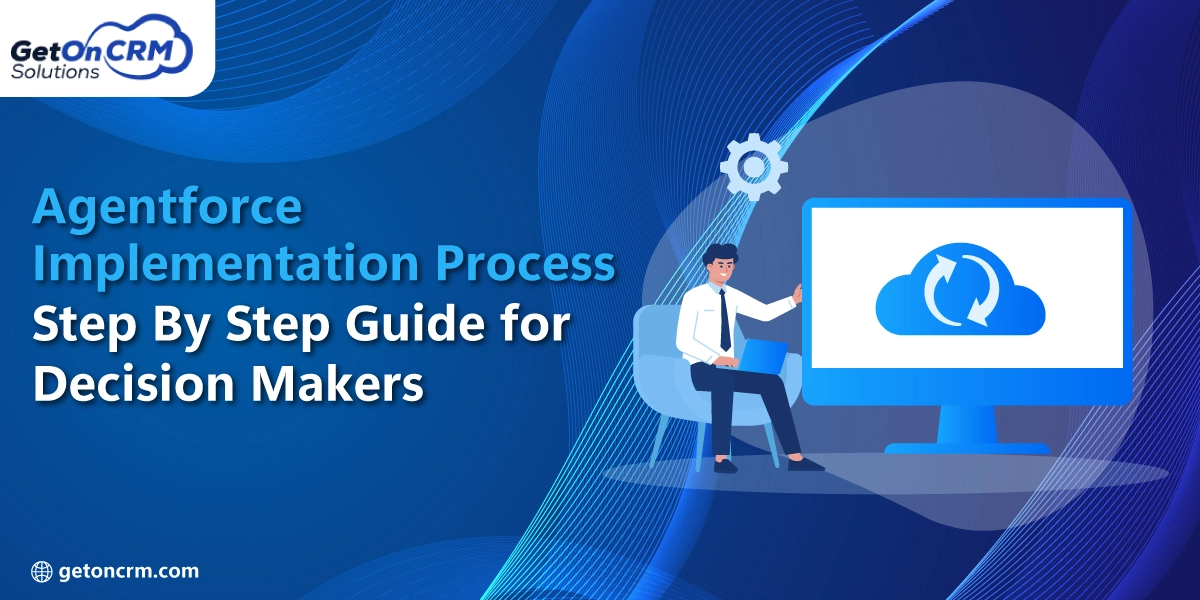The pharmaceutical industry stands at a pivotal crossroads, marked by a significant evolution from the traditional blockbuster drug model to the more nuanced and targeted approach of precision medicine. This shift reflects a change in scientific understanding and capabilities and a transformation in market demands and patient expectations. Integrating Customer Relationship Management (CRM) platforms is central to navigating this complex landscape, offering unprecedented opportunities to improve drug launch outcomes.
By leveraging the power of CRM, pharmaceutical companies can enhance their engagement with healthcare professionals, patients, and payers, ensuring that new treatments reach their intended audiences effectively and efficiently.
The Shift in Pharma: From Blockbuster to Precision Medicine
Blockbuster Model Philosophy
Historically, the pharmaceutical industry’s success was built mainly on the blockbuster drug model. This approach focused on developing drugs that could be sold to the largest possible patient population, aiming for annual sales exceeding $1 billion. The rationale was straightforward: drug development’s enormous costs and time necessitated a broad market reach to achieve a satisfactory return on investment (ROI).
A prime example of this model’s success is Pfizer’s Lipitor, a treatment for type 2 diabetes, which, at its peak, generated worldwide sales of approximately $14 billion in 2006.
Emergence of Precision Medicine
However, the industry is rapidly pivoting towards the precision medicine model, which focuses on smaller, more specific patient populations. This approach aims to customize healthcare, with medical decisions, practices, and products tailored to individual patients.
While this shift promises improved outcomes and more efficient care, it presents new challenges in drug development and launch strategies, particularly in achieving the billion-dollar sales figures in the blockbuster era.
The Role of Technology in Drug Launches
Technological Advancements
Significant technological advancements underpin the transformation of the pharmaceutical industry. Innovations in artificial intelligence (AI), machine learning, and quantum computing are reshaping drug discovery, development, and commercialization processes. These technologies enable the analysis of vast datasets, accelerating the identification of potential drug candidates and optimizing clinical trials.
AI-Accelerated Drug Discovery
AI-accelerated drug discovery stands out as a game-changer, offering the ability to generate thousands of potential chemical compounds, thereby dramatically increasing the efficiency of the drug discovery process.
For instance, partnerships between tech companies like NVIDIA and pharmaceutical giants such as AstraZeneca and GSK highlight the potential of AI and supercomputing to address complex healthcare challenges.
Quantum Computing in Medical Research
Although still in its infancy, quantum computing is recognized for its potential to revolutionize medical research. By performing calculations at speeds unattainable by traditional computers, quantum computing could significantly shorten the time required for drug development.
An example of its potential application is Roche’s partnership with Cambridge Quantum Computing to accelerate the development of drugs for Alzheimer’s disease.
CRM Platforms: A Keystone for Successful Drug Launches
Defining CRM in Pharma
Customer Relationship Management (CRM) platforms in the pharmaceutical industry serve as comprehensive tools to manage and analyze customer interactions and data throughout the customer lifecycle. They aim to improve business relationships with customers.
Specifically, healthcare professionals (HCPs), payers, and patients are driving sales growth and enhancing patient care. CRM platforms consolidate data from various channels, providing a 360-degree view of the customer, which is crucial for personalized communication and targeted marketing strategies.
Facilitating Better Data Management and Customer Engagement
CRM platforms are instrumental in managing the vast amounts of data generated in the pharmaceutical industry, from clinical trial data to patient health records and HCP interactions.
By integrating this data, CRMs enable companies to identify trends, segment markets, and tailor their approaches to different stakeholders. This data-driven insight is vital for engaging effectively with each segment, ensuring that communication is relevant, timely, and impactful.
Integrating CRM for Enhanced Market Access
Strategies for Leveraging CRM
Market access is a critical phase in the drug launch process, involving strategies to ensure that patients gain timely and affordable access to new treatments. CRM platforms are pivotal in this phase by helping companies navigate complex payer landscapes and regulatory environments.
By analyzing payer policies, reimbursement levels, and patient demographics, CRM systems can identify the most promising pathways for market entry and help tailor value propositions to different stakeholders.
Understanding the Market with CRM Data
Utilizing CRM for Deeper Insights
A deep understanding of the market is essential for the successful launch of any drug. CRM platforms provide pharmaceutical companies with the tools to analyze market trends, competitor activities, and the effectiveness of marketing strategies. This information allows companies to adapt their approaches in real time, optimizing their marketing efforts and improving the chances of a successful drug launch.
Techniques for Analyzing CRM Data
Advanced analytics and machine learning algorithms can sift through CRM data to predict healthcare professionals’ prescribing behaviors, patient adherence patterns, and the potential impact of external factors on drug uptake. These insights enable companies to decide where to focus their efforts, which messages to prioritize, and how to allocate their resources most effectively.
Differentiating Products in a Competitive Market
The Role of CRM in Highlighting Product Differentiation
In the crowded pharmaceutical market, effectively differentiating one’s product is crucial. CRM platforms assist in this by enabling companies to tailor their communications based on the unique benefits of their drugs and the specific needs of their target audiences.
This personalized approach helps to highlight the product’s unique value proposition, making it stand out in the minds of HCPs and patients.
Examples of CRM-driven Product Differentiation Strategies
A notable example involves a company that used its CRM system to track and analyze the outcomes of patient treatments in real time. By demonstrating superior patient outcomes directly to HCPs through personalized reports generated by the CRM, the company was able to differentiate its drug from competitors effectively.
Overcoming Challenges in Drug Launches with CRM
The path to a successful drug launch is fraught with challenges, from limited market access and inadequate market understanding to poor product differentiation. CRM platforms offer tools to address these challenges, enabling pharmaceutical companies to navigate the complexities of the modern healthcare landscape more effectively.
Limited Market Access
Market access is often cited as one of the most significant barriers to successfully launching a new drug. This challenge encompasses a range of issues, including regulatory hurdles, payer negotiations, and the need to demonstrate value to healthcare providers and patients.
- How CRM Platforms Can Overcome Barriers: CRM platforms can play a crucial role in overcoming these barriers by providing detailed insights into the regulatory landscape and payer preferences. Companies can identify successful strategies and potential pitfalls by analyzing data on previous drug approvals and market entries. Additionally, CRM systems can help manage relationships with key stakeholders, ensuring that negotiations with payers are informed by up-to-date data and tailored to address their concerns.
- Strategies for Using CRM Data to Plan and Execute Market Entry: Effective market entry strategies are built on a deep understanding of the target market. CRM platforms enable companies to segment the market based on various factors, including geographic location, payer type, and patient demographics. This segmentation allows for the development of tailored strategies that address each segment’s unique needs and preferences, increasing the likelihood of successful market access.
Inadequate Market Understanding
A thorough market understanding is essential for successfully launching a new drug. That includes knowledge of the competitive landscape, patient needs, and healthcare provider preferences.
- Leveraging CRM for Comprehensive Market Analysis: CRM platforms offer powerful tools for analyzing market data, enabling companies to gain insights into the competitive landscape, identify unmet patient needs, and understand the factors influencing healthcare provider prescribing decisions. This information can inform every aspect of the drug launch strategy, from product positioning to marketing and sales efforts.
- Case Studies on the Use of CRM to Gain Market Insights: One example involves a pharmaceutical company that used its CRM platform to analyze real-time prescribing patterns. By identifying trends in healthcare provider behavior, the company adjusted its marketing strategy to address the needs and concerns of its target audience better, resulting in increased uptake of its new drug.
Poor Product Differentiation
In a market crowded with competing products, effective differentiation is critical to capturing the attention of healthcare providers and patients.
- CRM Strategies for Effective Product Branding and Positioning: CRM platforms enable companies to tailor their messaging based on their product’s unique features and benefits. By leveraging data on healthcare provider preferences and patient outcomes, companies can develop targeted marketing campaigns highlighting the aspects of their product most likely to resonate with their audience.
- Examples of CRM-driven Differentiation in Pharma: A notable case involves a company that used its CRM system to track patient outcomes and real-time feedback. By demonstrating the real-world effectiveness of its drug, the company was able to differentiate its product from competitors, leading to increased market share.
Case Study: CRM Integration in Action
To illustrate the power of CRM platforms in improving drug launch outcomes, let’s examine a detailed case study of a pharmaceutical company that successfully integrated CRM into its strategy.
- Background and Challenges: The company was preparing to launch a new drug in a highly competitive market. Key challenges included limited market access due to stringent regulatory requirements, a lack of understanding of the target market, and difficulty differentiating the product from existing treatments.
- CRM Integration Strategy: The company implemented a comprehensive CRM platform that allowed for detailed market analysis, stakeholder management, and patient outcomes tracking. The platform was used to segment the market, tailor communications to different stakeholder groups, and gather feedback from early drug users.
- Outcomes and Impact: The CRM-driven strategy resulted in a successful drug launch. The company navigated regulatory hurdles more effectively, gained insights into the needs and preferences of its target market, and clearly differentiated its product from competitors. The drug quickly gained market share and exceeded sales expectations.
The Future of Drug Launches: Predictions and Trends
As the pharmaceutical industry continues to evolve, the role of CRM platforms in drug launches is expected to grow. Emerging trends include the increasing use of AI and machine learning to analyze CRM data, the integration of real-world evidence (RWE) to inform marketing and sales strategies, and the development of more personalized approaches to patient care.
- Predictions for the Future Role of CRM Platforms: CRM platforms will become even more integral to the drug launch, with advanced analytics and AI driving deeper insights into market dynamics and stakeholder preferences. That will enable even more targeted and effective marketing strategies, improving the chances of successful drug launches.
- Emerging Trends in Technology and Market Strategies: The integration of RWE into CRM platforms will allow companies to demonstrate the real-world value of their products more effectively, facilitating better market access and product differentiation. Additionally, the focus on personalized patient care will drive the development of CRM strategies that address individual patients’ specific needs and preferences, improving patient outcomes and satisfaction.
Also Read: How Can Healthcare Providers Bridge The Gap Between Automation Adoption And Strategic Planning
Integrating CRM platforms into drug launch strategies offers pharmaceutical companies a powerful tool for navigating the complexities of the modern healthcare landscape. CRM platforms can help overcome the challenges of limited market access, inadequate market understanding, and poor product differentiation by enabling better data management, customer engagement, and market analysis. As the industry continues to evolve, the role of CRM in ensuring the success of drug launches is set to become even more critical.
Frequently Asked Questions on Integrating CRM for Better Pharma Drug Launches
How does CRM help in a successful drug launch?
CRM solutions streamline communication, manage stakeholder engagement, and track marketing activities. They ensure smooth coordination between teams, doctors, and distributors for effective product rollout.
Can CRM tools help track physician engagement?
Yes. CRMs track physician interactions, feedback, and prescribing patterns. This helps pharmaceutical companies tailor messaging and build stronger relationships with healthcare professionals.
How does CRM support regulatory compliance during launches?
CRM platforms maintain secure records, provide audit trails, and ensure communication follows regulatory guidelines, reducing compliance risks during sensitive product launches.
Does CRM improve patient awareness in drug launches?
Yes. CRM enables personalized outreach, reminders, and patient education campaigns. This ensures patients receive the right information, boosting awareness and adoption of new therapies.
Is CRM useful for post-launch monitoring?
Absolutely. CRM tools track market feedback, physician adoption, and patient response, helping pharma companies refine strategies and optimize product success after launch.





















